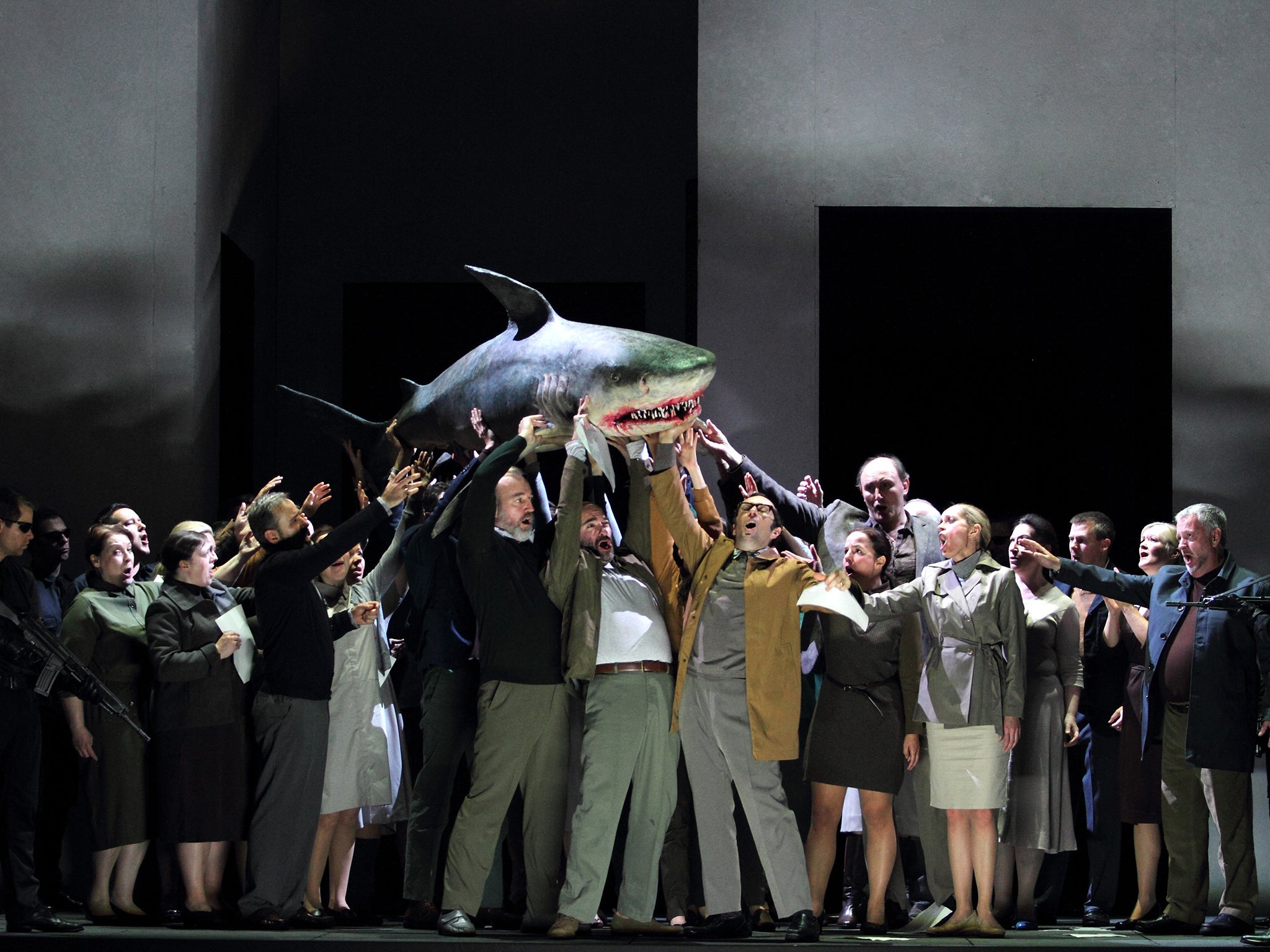Mozart’s Idomeneo: Martin Kusej is greeted by 'a Mexican wave of booing'
Opera audiences are increasingly voicing their opinion, with one recent production receiving a curtain call of jeers. At £200 a ticket, why the heckle not

Your support helps us to tell the story
From reproductive rights to climate change to Big Tech, The Independent is on the ground when the story is developing. Whether it's investigating the financials of Elon Musk's pro-Trump PAC or producing our latest documentary, 'The A Word', which shines a light on the American women fighting for reproductive rights, we know how important it is to parse out the facts from the messaging.
At such a critical moment in US history, we need reporters on the ground. Your donation allows us to keep sending journalists to speak to both sides of the story.
The Independent is trusted by Americans across the entire political spectrum. And unlike many other quality news outlets, we choose not to lock Americans out of our reporting and analysis with paywalls. We believe quality journalism should be available to everyone, paid for by those who can afford it.
Your support makes all the difference.When Kasper Holten became director of the Royal Opera three years ago, he declared that he wanted to take audiences “out of their comfort zone”. Mission accomplished, Kasper. At the latest Covent Garden production of Mozart’s Idomeneo, the director Martin Kusej, hired by Holten was greeted at the curtain call by what has been described as “a Mexican wave of booing”.
Curiously, Holten has not enjoyed being taken out of his own comfort zone by this reaction. He worries that booing at the opera is getting worse in Britain, saying: “I’m split, because I like that people feel passionately about it and can voice their opinions, but it can be painful, and just a few people booing very loudly can dominate a room.”
The trouble is that a lot of the audience found the production painful. They weren’t wild about a rubber shark being used on stage as a symbol of persecution or children in school uniforms brandishing machine guns. Not that Covent Garden audiences should be totally surprised by radical updates.
Two years ago, a few months into Holten’s reign, Dvorak’s magical opera Rusalka was set in a brothel. The booers were out in force that night, too. And a couple of decades ago, a group called the “Hecklers” was specifically set up to boo Harrison Birtwistle’s Gawain at the same address. They did show some etiquette, instructing members of the group to boo only at the end, not during the performance. As someone who was present on the first night in 1994, I think that the instruction erred on the side of generosity. What was interesting about that night was that Lord Gowrie, the then Arts Minister, stood up in the stalls, trying, not entirely successfully, to start a standing ovation to counter the boos.
There are, of course, many other examples, not least the cascade of booing that would have made several Mexican waves that greeted a bloody production by the English National Opera in 1984 of Tchaikovsky’s Mazeppa, memorably called by one critic “The Texas Chainsaw Mazeppa”.
The first thing one should say on the subject of booing is that it would be philistinism gone mad to think that all radical updates of classic operas are a mistake. At both the Royal Opera House and, much more, at the English National Opera, updating the classics has become a source of adventure, pleasure and discovery, Jonathan Miller’s New York mafia set Rigoletto being just one spectacularly brilliant example. But sometimes directors can get it horribly wrong, and then the question is: “Is booing a step too far?”
I feel that far from showing poor manners, opera audiences are in fact selective and judicious in how they boo. Unlike at Milan’s La Scala where a singer can be traumatised by booing, British audiences virtually never boo a singer, an orchestra or a conductor. But they can and do boo directors if they feel that a director has taken such liberties with the composer’s and librettist intentions as to make the works either meaningless or visually a contradiction of the words and music.
In such circumstances, booing is a legitimate audience reaction. First, it makes crystal clear the audience’s feeling that the singers are not to blame, by contrasting applause for them with booing for the director. One could argue that lukewarm applause or silence might be more polite than a boo, but lukewarm applause or silence might be too much praise.
Add to that the fact that the Royal Opera is partly paid for by the taxpayer, which increases a sense of ownership by the audience, and, not least, the fact that with seats up to £200 and beyond, the audience is right to let it be known if it hasn’t had a good night out.
There are those who find it uncouth for a performance to be booed. But why should music be so different from sport in this respect? At a football match, booing at the final whistle is a respectable way of making one’s feeling known about people who have failed to entertain spectators. Why not at opera?
Back at that performance of Gawain in 1994, the head of the Hecklers gang told me that he was part of a noble tradition. “We are heckling for harmony, booing for beauty,” he said. “Heckling was common in the 19th century and before.” Well, booing for beauty is back. And it might take quite a few directors out of their comfort zones.
Join our commenting forum
Join thought-provoking conversations, follow other Independent readers and see their replies
Comments